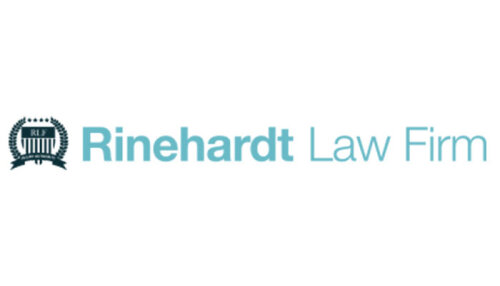Best Work Injury Lawyers in Ontario
Share your needs with us, get contacted by law firms.
Free. Takes 2 min.
List of the best lawyers in Ontario, United States
1. About Work Injury Law in Ontario, Canada
Ontario follows a mandatory workers' compensation system administered by the Workplace Safety and Insurance Board (WSIB). This system provides wage replacement, medical care, and rehabilitation for workers injured on the job. In most cases, workers receive benefits through WSIB rather than pursuing a civil lawsuit against their employer.
The legal framework balances employer responsibility with worker protection. The key statute is the Workplace Safety and Insurance Act, 1997 (WSIA), which outlines who is covered and what benefits are available. The act is complemented by the Occupational Health and Safety Act (OHSA), which imposes safety duties on employers and workers. In Ontario, the claim process and benefit determinations are typically handled through WSIB rather than through ordinary civil courts.
Important context for residents: if your injury involves harassment, discrimination, or a failure to accommodate a disability, the Ontario Human Rights Code may also apply in addition to WSIB benefits. Always consider how multiple legal avenues may intersect with your work injury claim. For precise guidance, consult a solicitor or legal counsel experienced in workers' compensation in Ontario.
For official information, see the Government of Ontario resources and WSIB materials available online. These sources describe coverage, eligibility, and the claims process in detail: Occupational Health and Safety Act, Ministry of Labour, Immigration, Training and Skills Development, and WSIB.
2. Why You May Need a Lawyer
Work injury cases can be complex and time consuming. A solicitor or legal counsel with Ontario workers' compensation experience can help you navigate the WSIB process and protect your rights.
Scenario 1: Your WSIB claim is denied or benefits are reduced - A construction worker suffers a back injury on site, and the WSIB initially denies benefits for time off work. A lawyer can review medical documentation, gather supporting evidence, and file an appeal or reconsideration to seek the appropriate benefits.
Scenario 2: You disagree with a disability rating or permanent impairment decision - A nurse develops repetitive strain injuries and receives a partial impairment rating that you believe is too low. An attorney can advocate for a re-evaluation and appropriate compensation under WSIA guidelines.
Scenario 3: You need accommodations or return-to-work support - An employee with a work-related injury requires workplace modifications. A legal counsel can assist with accommodation requests and ensure employers meet their OHSA duties while protecting ongoing wage benefits.
Scenario 4: Third-party liability is at play - A forklift accident on site caused by a faulty product or negligence of a third party. A lawyer can pursue a separate civil claim against the responsible third party while the WSIB claim proceeds.
Scenario 5: You face retaliation or disciplinary action after reporting an injury - If an employer disciplines or retaliates against you for filing a WSIB claim, a solicitor can advise on remedies under OHSA and human rights provisions.
Scenario 6: Mental health injuries are involved - Ontario recognizes mental health injuries in some WSIB contexts. A lawyer can help gather medical evidence and present a full picture of the impact on work ability.
3. Local Laws Overview
The Ontario legal framework for work injuries includes three core pieces of law. Each governs different aspects of safety, compensation, and rights for workers.
- Workplace Safety and Insurance Act, 1997 (WSIA) - Governs the WSIB program, eligibility, and benefits for work-related injuries or illnesses. This act shapes how benefits are calculated, what is covered, and how appeals are handled. The WSIA is amended periodically to reflect changes in policy and practice. See the Government of Ontario for statutory details: Workplace Safety and Insurance Act, 1997.
- Occupational Health and Safety Act (OHSA) - Sets duties for employers and workers to maintain a safe and healthy workplace. It covers general safety obligations, reporting requirements, and the authority of inspectors. See: Occupational Health and Safety Act.
- Ontario Human Rights Code - Protects employees from discrimination and requires reasonable accommodation for disabilities related to work injuries. See: Ontario Human Rights Code.
Recent trends in Ontario include a growing emphasis on mental health in the workplace and ongoing updates to return-to-work supports under WSIB. For the latest official guidance, consult the WSIB and Ontario government pages linked above.
4. Frequently Asked Questions
What is the WSIB and how does it affect my injury claim?
The WSIB administers compensation for most work-related injuries in Ontario. Benefits may include wage replacement, medical care, and rehabilitation. A lawyer can help ensure your claim is complete and timely.
How do I report a work injury to my employer in Ontario?
Report the injury in writing to your employer as soon as possible. Request a claim number and keep copies of all reports and medical notes to support your claim.
When should I hire a lawyer for a WSIB claim?
Consider hiring a lawyer if your claim is denied, benefits are reduced, or you anticipate disputes about impairment ratings or return-to-work obligations.
Where can I find the official rules for workers compensation in Ontario?
Official rules are published by the Government of Ontario and WSIB. Start with WSIB resources and the OHSA for broad regulatory context.
Why might a WSIB claim be denied and what can I do?
Claims may be denied for missing medical evidence, pre-existing conditions, or lack of causal connection. An attorney can help gather evidence and pursue reconsideration or appeal.
Can I sue my employer for a work injury in Ontario?
Usually not, due to the exclusive remedy principle under WSIA. Exceptions may exist for intentional harm or third-party liability, which a solicitor can evaluate.
Should I appeal a WSIB decision and how?
If you disagree with a WSIB decision, you can request a reconsideration or file for a hearing with the Workplace Safety and Insurance Appeal Tribunal (WSIAT). A lawyer can guide you through the process.
Do I need a lawyer if my injury is ongoing but I remain employed?
Yes, ongoing injuries can require careful documentation of medical evidence, accommodation needs, and future benefit planning. A solicitor can help protect long-term interests.
Is mental health injury coverage available under WSIB in Ontario?
Ontario acknowledges certain mental health injuries related to work. Documentation from qualified medical professionals is important for eligibility and accommodation planning.
How much do lawyers charge for WSIB cases?
Lawyer fees vary but are often contingent on the scope of services, complexity, and outcomes. Ask for a clear fee agreement during the initial consultation.
How long does a WSIB claim take to resolve?
Resolution timelines vary widely based on injury type, medical evidence, and appeals. Simple claims may resolve in weeks, complex ones can take months.
What is the timeline to dispute a WSIB decision?
There are deadlines for reconsiderations and appeals. Your solicitor can outline the exact timelines once a decision is issued.
5. Additional Resources
- Workplace Safety and Insurance Board (WSIB) - Ontario’s agency administering workers' compensation benefits, including claim filing, medical coverage, and wage replacement. Official site: wsib.ca.
- Ontario Ministry of Labour, Immigration, Training and Skills Development - Sets and enforces safety standards, investigates workplace incidents, and provides guidance to employers and workers. Official site: ontario.ca.
- Ontario Human Rights Commission - Addresses discrimination and accommodation related to disability and workplace injuries. Official site: ohrc.on.ca.
6. Next Steps
- Document the injury in detail. Note dates, times, locations, witnesses, and symptoms. Gather medical records and any work notes related to the injury.
- Notify your employer in writing and request a WSIB claim number. Keep a copy of the notification and any responses.
- Seek medical treatment promptly and obtain a complete medical report linking the injury to work duties. Ask for documentation of work restrictions or accommodations.
- Consult a solicitor or legal counsel with Ontario workers' compensation experience. Bring all injury, medical, and employment records to the initial meeting.
- Have the lawyer assess whether to proceed with a WSIB claim, a reconsideration, or an appeal to the Workplace Safety and Insurance Appeal Tribunal (WSIAT). Do not delay if a decision is issued you disagree with.
- Prepare your claim package with your lawyer, including medical opinions, witness statements, and employer correspondence. Ensure all deadlines are noted in writing.
- Monitor benefits and accommodations through your employer and WSIB. If benefits change, request a formal review and discuss options with your lawyer.
For quick reference, official sources include the Ontario Occupational Health and Safety Act and the WSIB information pages. See: OHSA, WSIA, and WSIB.
Note on jurisdiction: This guide focuses on Ontario, Canada. If you meant Ontario in the United States, the legal framework, agencies, and processes are different. Please specify your location for a tailored guide.
Lawzana helps you find the best lawyers and law firms in Ontario through a curated and pre-screened list of qualified legal professionals. Our platform offers rankings and detailed profiles of attorneys and law firms, allowing you to compare based on practice areas, including Work Injury, experience, and client feedback.
Each profile includes a description of the firm's areas of practice, client reviews, team members and partners, year of establishment, spoken languages, office locations, contact information, social media presence, and any published articles or resources. Most firms on our platform speak English and are experienced in both local and international legal matters.
Get a quote from top-rated law firms in Ontario, United States — quickly, securely, and without unnecessary hassle.
Disclaimer:
The information provided on this page is for general informational purposes only and does not constitute legal advice. While we strive to ensure the accuracy and relevance of the content, legal information may change over time, and interpretations of the law can vary. You should always consult with a qualified legal professional for advice specific to your situation.
We disclaim all liability for actions taken or not taken based on the content of this page. If you believe any information is incorrect or outdated, please contact us, and we will review and update it where appropriate.










